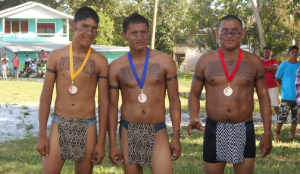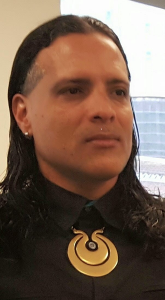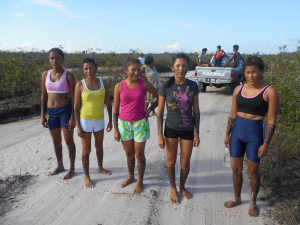‘Traditional Games’ looking to become an indigenous centrepiece

On Saturday, Aug. 16, 2015 the second CARICOM inter-tribal games ended at the Pakuri Lokono-Arawak Territory(St Cuthberts’ Mission) in Guyana.
In terms of news reports, the event was quietly held; for the tribes from Guyana and Dominica who attended, it was a small but successful endeavour, and the notion revealed a potential for becoming a truly international experience.
Events for the first CARICOM inter-tribal games were held in 2012 when founder of the event, Barbadian Lokono-Arawak Damon Corrie, who hails his ancestry in Guyana, sponsored 90 per cent of all associated costs for holding the games.

Since that time he has brought Kalinago-Carib athletes from Dominica to Guyana so that there would be a minimum of two countries and three different indigenoustribes taking part. Prior to that, from 2007, he was already sponsoring a series of sporting events annually for the Lokono-Arawak people of Pakuri.
The idea of a regional inter-tribal sporting event began for Corrie after the 2012 London Olympics when, for the first time in history, a member of his Lokono-Arawak tribe in Guyana was present as a competitorat the occasion.
According to a report by the Pan-Tribal Confederacy of Indigenous Tribal Nations, Corrie declared,“I wanted to ride on the wave of sporting enthusiasm and goodwill that the 2012 London Olympics brought to my tribe and share it with other tribes, and at the same time bring tangible benefits (medals & prize money) to Amerindian athletes who competed in my games which would ALSO be the first CARICOM Inter-Tribal Games ever held in history – as a way to give the youth something positive to aspire to instead of the destructive bad habits of illegal drugs, alcohol, and promiscuity – which idle souls with no positive recreational outlet tend to gravitate towards… to the detriment of themselves and wider society in general.”




